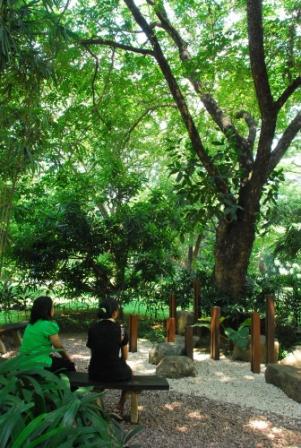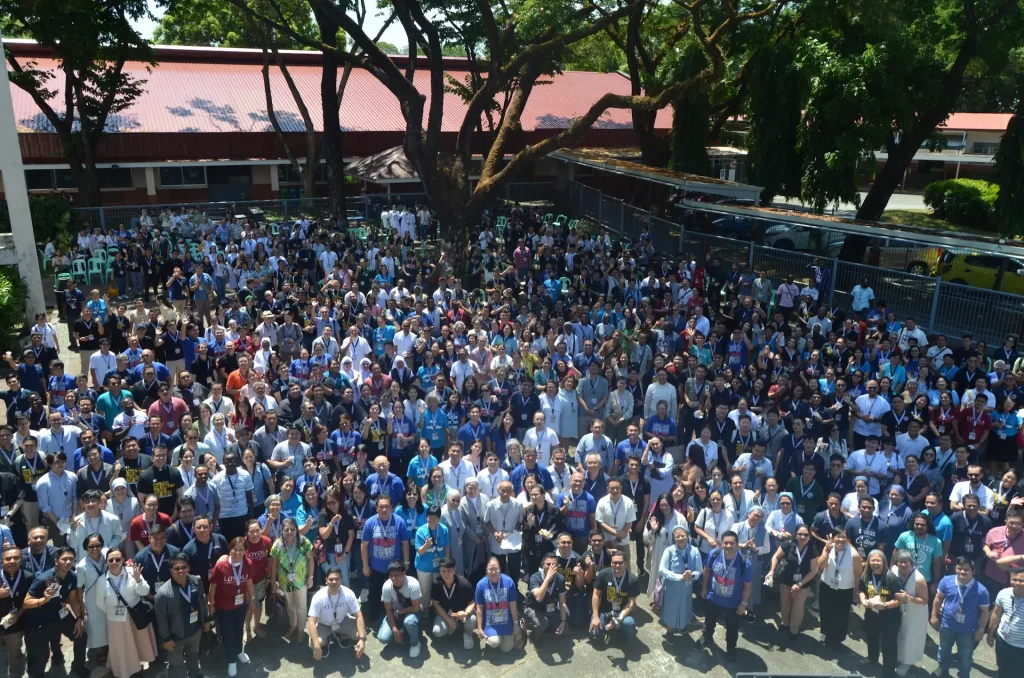Jesuit colleges and universities in Asia Pacific have committed to becoming green campuses. Fr Joel Tabora SJ, Chair of theAssociation of Jesuit Colleges and Universities in Asia Pacific (AJCU-AP), elaborates on the commitment, which was made at the AJCU-AP annual meeting in Tokyo from August 23 to 24, 2011.
The AJCU-AP approved the resolution on “growing green campuses” in each of our schools as proposed by Fr Pedro Walpole SJ,who heads the Reconciliation with Creation group within the Jesuit Conference of Asia Pacific. The approval was on the understanding that curricula must be revised to include complementary environmental instruction and formation. This is not just a challenge for green campuses; it is a challenge to form our students to live in environmental responsibility.
It was appreciated that neither instruction on environment nor environmental advocacy are credible without appropriate environmental-consciousness praxis in our schools.
Accordingly, the “growing green campuses” approval includes commitment to the following:
1. Training on ‘Our Environmental Way of Proceeding’ This document includes a basic reflection and attitudinal directive as to how we can better reconcile with creation on campus. It is intended that this booklet will be of use in developing staff/faculty handbooks. Orientations for institutional staff and board members will be offered.
2. Establishing ‘Campus Baseline Environmental Measurements and Procedures’ The management team of each campus will be helped to make a baseline study on current housekeeping or “ecology-keeping” factors on their campus, covering all areas of waste production and energy consumption. This will enable the management team to measure what it plans to change and to share and report this to others involved in campus management. This is most important in establishing institutional credibility and buy-in from students. We recognize the present capacity level varies across the Conference.

4. Ecology formation course This course will be developed with institutions for lay and Jesuit participation. It will not only be academic in terms of giving the scientific basis and helping participants to see the linkage with climate change, but also feature spirituality and social experience and reflection. It will include a week’s field engagement with community involvement and spiritual reflection. The course will help to strengthen the institutional vision and build scientific, social and spiritual capacity within the institution for Reconciliation with Creation. It will draw on existing courses and could rotate with different emphasis over a set number of years and institutes.
5. ‘Ecology Committee’ and ‘Sustainability Officer’ Most institutions have some form of “Ecology Committee.” The position of a “Sustainability Officer” may be incorporated into this organizational structure. Such a person would manage the environment of the campus as part of strategic plans within the contexts both of physical plant management and a proactive environmental vision. The officer would develop the capacity to develop carbon footprint accounting for the institute. Since appropriate skills may be needed to enhance existing faculty capacity, a training programme will be offered. Initial discussions have taken place with St. Michael’s Technical College – Surakarta (ATMI), Sanata Dharma University in Indonesia and Environmental Science for Social Change (ESSC) in the Philippines. The intention is to include Ateneo de Davao (ADDU) with its capacity in this field and others interested in developing the initial course.
It was appreciated that different schools of AJCU-AP have different starting points in growing green. They also have different resources that can be mobilised for this effort.
Nevertheless, it was recognized that all have to go in this direction. Sharing one institution’s experience with others may be of help not only for the school that is sharing but also for all the schools traveling the same green path. ADDU will be going in this direction.
The Association of Jesuit Colleges and Universities in Asia Pacific(AJCU-AP)is a network of Jesuit higher educational institutions and endeavours within the Jesuit Conference of Asia Pacific.
Top photo is the Marian Garden and Path and the other photo is Prayer and Reflection Garden at the back of the College Chapel, of the Ateneo de Manila University. An Integrated Sustainable Irrigation System (ISIS) is installed in the Marian Garden and Path in which natural wastewater treatment (reed bed), solar power and drip irrigation are being employed. Source: http://ls.ateneo.edu/system.php?LS=staticpages&id=1248073495298






